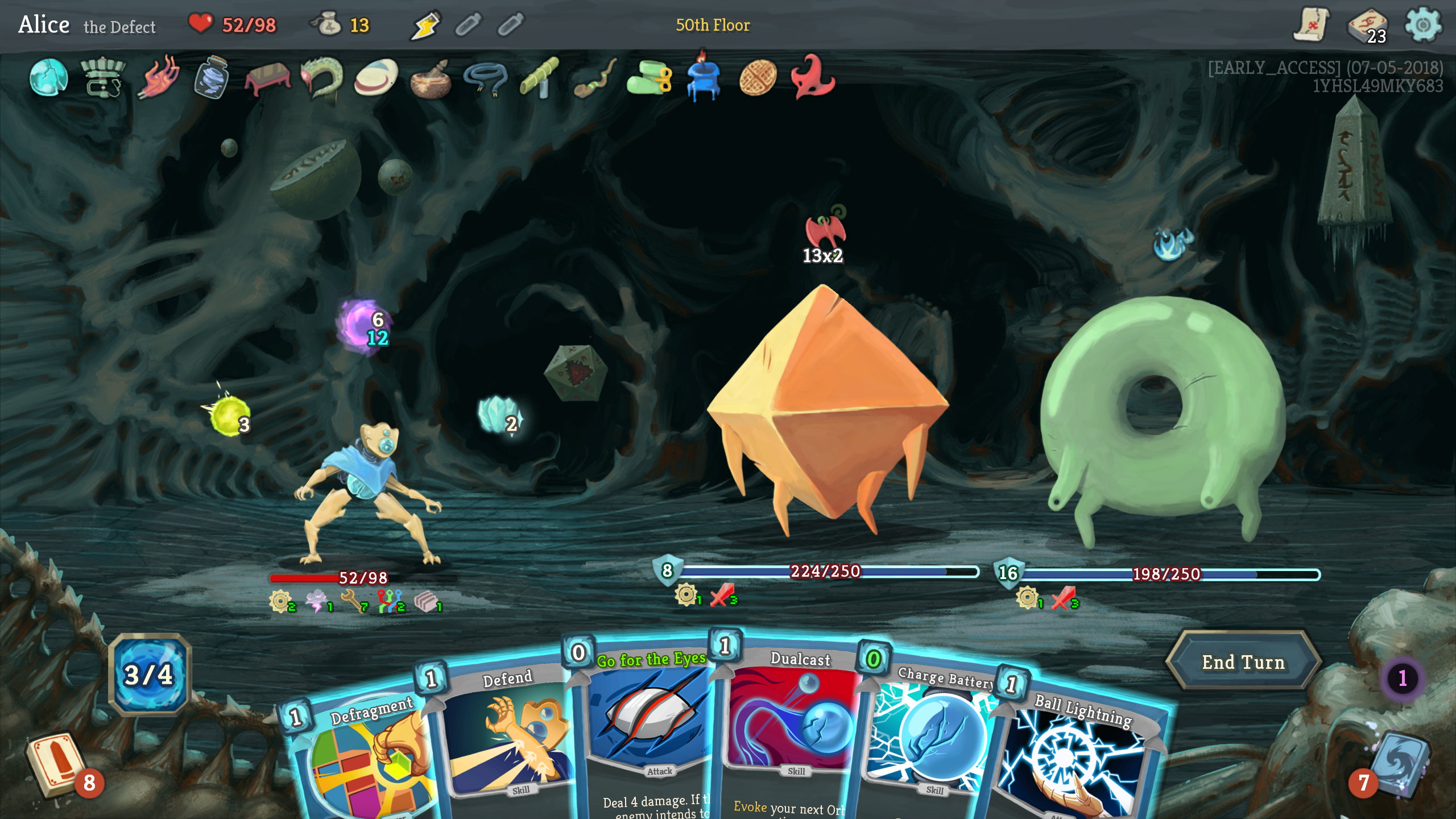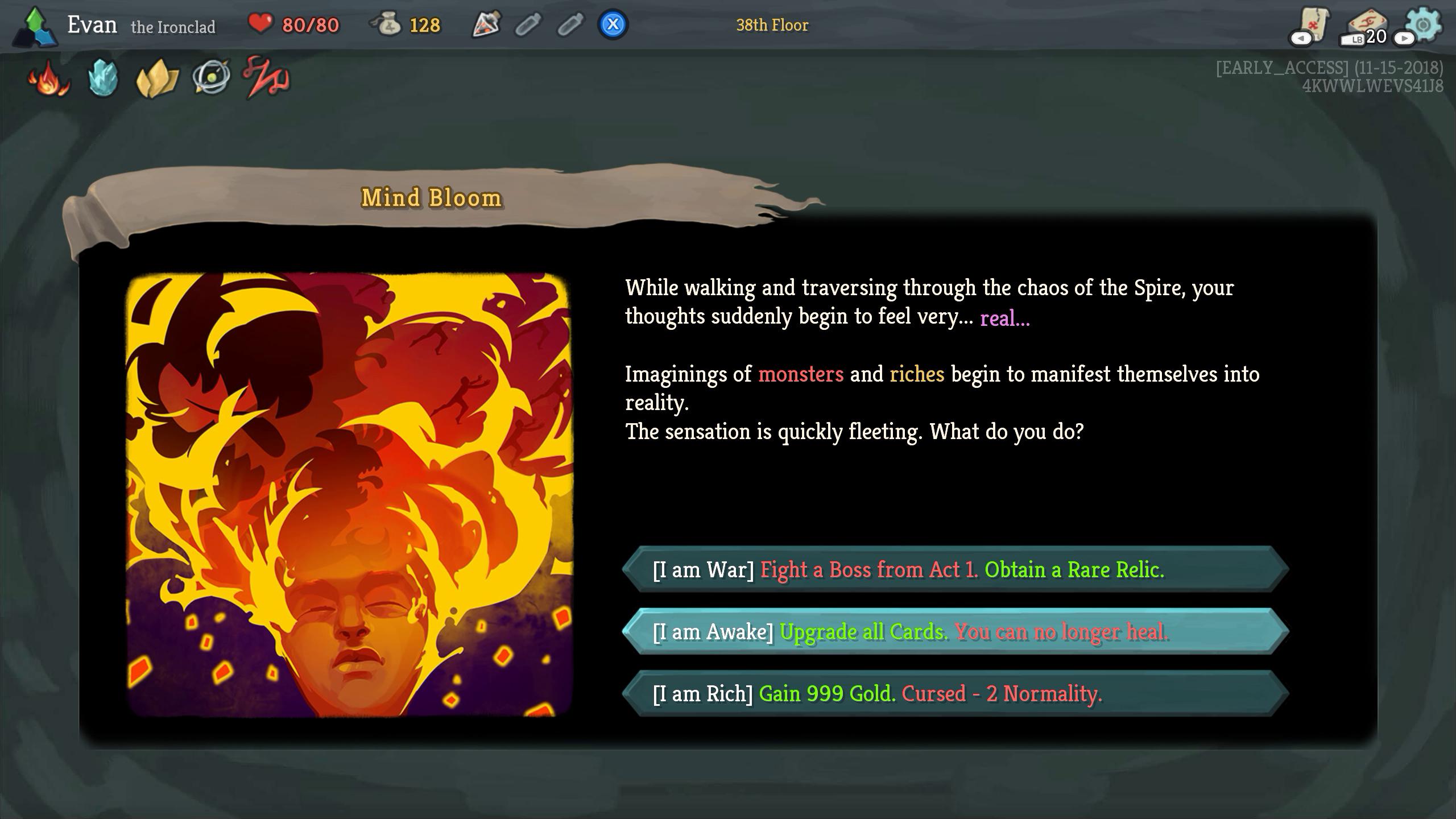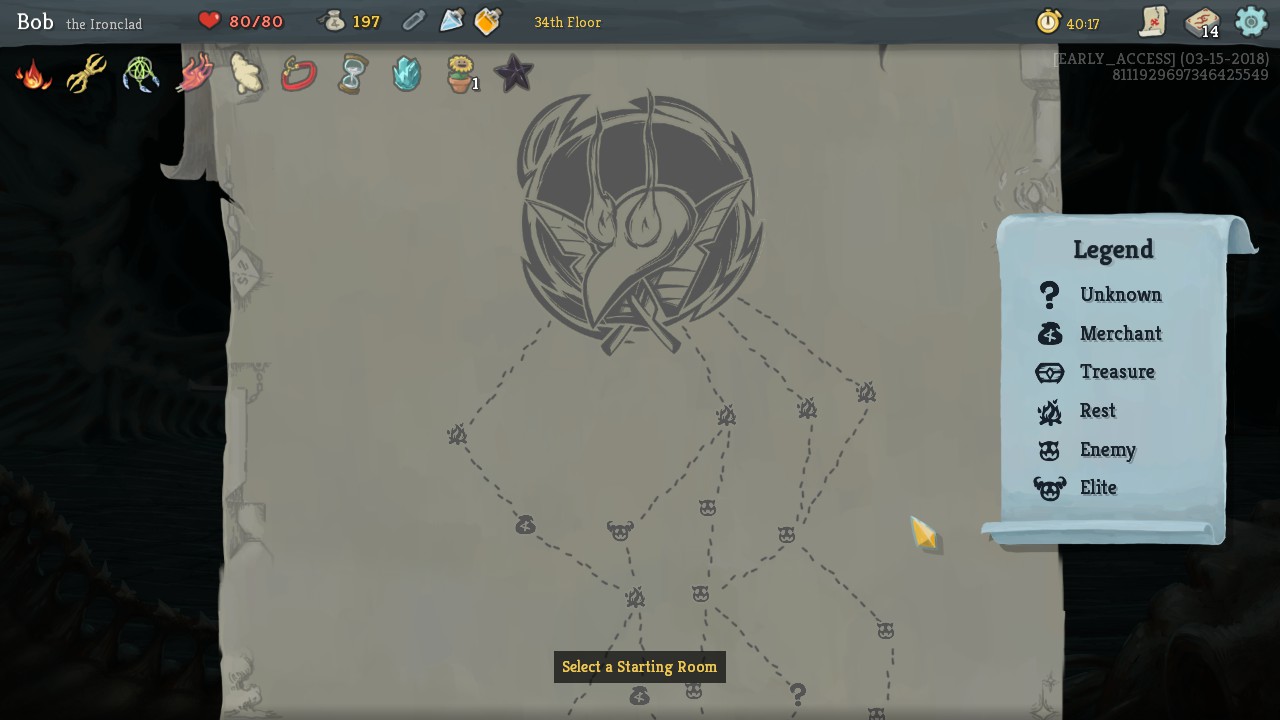Part of Slay the Spire's brilliance is that getting to the end isn't the hard part
The hard part is being a god when you arrive.

I thought I had finally won roguelike deck-builder Slay The Spire. In building my Silent deck I focused on card draw and energy production, which allowed me to generate near-infinite loops that, even if ended by a bad draw, generated so much block that nothing could touch me.
I was strong as hell. There's a regular enemy in the third act with 999 health, and you don't have to actually beat it, just outlast it, because it dies on its own after a set number of turns. With this deck, I felt confident I could've killed it even without the timer. Nothing could stop me.
And then I got stomped by the final boss. Just wrecked.
My deck contained too many useless cards that created the potential for what happened: drawing the worst possible hands at the worst possible moments. It was unrefined, and missing some key components that would've given me a truly infinite loop. It was a great deck until it was terrible. (Alas, I didn't screenshot it at the time and it'd take forever to find it among my other runs, but it's nothing unbelievable.)

One of the many brilliant things about Slay the Spire is how often it's possible to reach the end, whether or not I'm strong enough to beat the bosses. I can take easy routes, hitting events and rest sites and merchants and avoiding elite enemies, build a decent deck, feel good, and then stare down 60-or-whatever incoming damage with a hand that can do nothing about it and realize my deck is complete trash.
This is evidenced by the achievements. 60.3 percent of players have beaten The Shapes, the boss that appears at the end of the third act, but far fewer have reached and completed the ending beyond that. Many arrive, few survive.
I love that about Slay the Spire. I'm often turned off by roguelikes because, heck, I don't want to play the opening level or act or section 100 times to learn how to handle whatever's after it. I could never get into Spelunky for that reason, although I respect that its design clicks for others. (We gave it one of our highest review scores ever.)
The biggest gaming news, reviews and hardware deals
Keep up to date with the most important stories and the best deals, as picked by the PC Gamer team.
What makes Slay the Spire different to me is that I don't start a new run thinking, 'Can I reach the end this time?' I know I can reach the end. The question is, 'When I reach the end, will I be a god?'

To that end, plenty of my runs do end in the first or second act, because you don't become a god without taking risks. Sometimes, I start building a deck that I know will be weak until I find the right card, and just don't find it before eating dirt. Other times, I die because I targeted elite enemies too aggressively, hoping for a key relic drop (if you haven't played, relics are items with passive effects that can completely change the deck you build).
Dying can be frustrating in Slay the Spire, but these are calculated deaths, and that softens them a lot. I'd rather not reach the end of the game if I'm not going to be strong enough to win it all—or at least have a chance—so really it's better if I die early when things aren't panning out. Rarely in a game have I died and thought, "Well, this is for the best." That's part of what makes Slay the Spire so hard to put down.
And, generally, that's just one of the reasons Slay the Spire is currently one of my favorite games—Evan nicely encapsulates many other reasons in his review.
If you haven't picked it up, Slay the Spire is on Steam. If you're not into card games or roguelikes, this is the game to change your mind.

Tyler grew up in Silicon Valley during the '80s and '90s, playing games like Zork and Arkanoid on early PCs. He was later captivated by Myst, SimCity, Civilization, Command & Conquer, all the shooters they call "boomer shooters" now, and PS1 classic Bushido Blade (that's right: he had Bleem!). Tyler joined PC Gamer in 2011, and today he's focused on the site's news coverage. His hobbies include amateur boxing and adding to his 1,200-plus hours in Rocket League.

